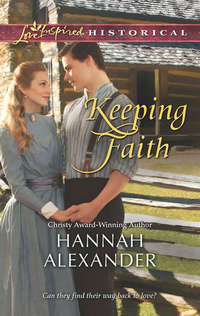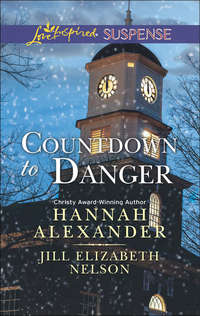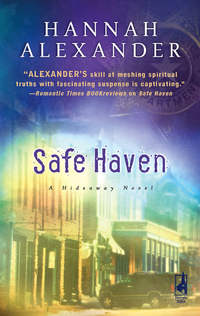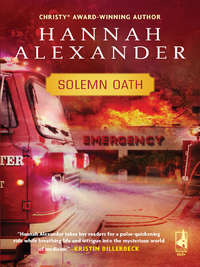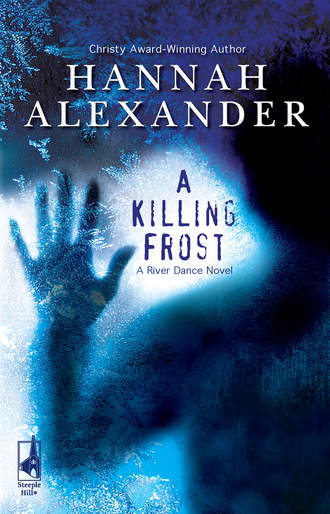
Полная версия
A Killing Frost
“Monty?”
He held a hand up and gave a brief shake of the head.
“Seriously, what’s up with you? Did you pull a muscle or something?”
“I’m not feeling the best, okay?” As he said the words, Jama spotted a streak of blood seeping through the blue sleeve of his chambray shirt.
She sprang from her chair and dropped to her knees beside him. “What happened?” She reached for his arm.
“Had a little accident with a ladder out behind the barn.”
“You fell from the ladder? And you didn’t tell me about it immediately?”
“It wasn’t at the top of my list.”
“I’m a doctor now, remember? We need to see to this.” Jama unbuttoned his sleeve.
“Think that director of yours will be here any time soon?”
Jama slid his sleeve up. “I’m not sure, but I’ll call and find out. Tell me exactly where you’re hurting. How did you land?”
“Think I might’ve busted a rib or two.” He grimaced again.
Jama saw a superficial cut on his wrist. The arm didn’t appear to be broken, but she would delay judgment about that until she had an X-ray. “Why didn’t you say something when you got here?”
“I wanted to meddle in your life while I had the chance, before you could pull out the doctor’s bag.”
“You can meddle as soon as we get you taken care of.”
“Promise?”
“Sure, whatever. First, I’ve got to get you inside. Sit tight.” She clipped her Bluetooth to her ear and punched in the new director’s number on her cell phone. She hadn’t bothered to incorporate the voice recognition for Dr. Lawrence’s name, because she had, without doubt, subconsciously hoped that somehow the director would just go away before the need arose to connect with her again. The woman was as cold as a well digger’s—
“How far did you fall?” Jama asked as she waited for Dr. Lawrence to answer the call.
Monty looked up at her, his face a frightening gray. The director picked up the call just as Monty slumped over, unconscious.
“Monty!”
Chapter Three
J ama felt for a pulse at Monty Mercer’s throat and watched the rise and fall of his chest. “Dr. Lawrence,” she said into her earpiece, “this is Dr. Jama Keith. I’ve arrived early at the clinic, and I have a patient on the front porch who just lost consciousness.”
“Call an ambulance.” The clipped voice of Dr. Ruth Lawrence had not grown warmer since the last time Jama had heard it. “We aren’t open for business.”
“I can take care of him if I can get him inside. We do have supplies, don’t we?” Jama gave what vitals she could. “Where can I get a key? And when is the staff due?”
“I’m at least thirty minutes out, and no one else is scheduled to be there. Either get a key from the mayor or get the patient to the closest facility. That would be Jefferson City or Fulton.”
“I know that,” Jama snapped.
“I highly advise transfer.” No emotion. Not irritation at Jama’s shortness. Not concern. Nothing.
“I’ll call the mayor for a key.” Jama clicked off, then spoke the mayor’s name into her Bluetooth. Why was no staff scheduled to arrive?
With one call, Jama discovered Eric Thompson was out of town for a meeting and wouldn’t be back until later in the morning. She dug her only credit card out of her purse, doubting she could jimmy the lock as easily as she had at the high-school gymnasium on her graduation night. If this failed, she’d break a window.
“Hang on, Monty. I’ll take care of you.” She placed another call as she knelt before the front door and slid the card between the door and the jamb.
A deep male voice sounded in her ear. “Jama? Are you at the clinic yet? What’s up?” Caller ID.
“Hi, Tyrell, where are you?” She was surprised by the relief she felt.
“Getting the Durango serviced down at Joe’s.”
Good. That was only a few blocks away. He could walk from there. Or run. “I need you to come to the clinic. Your dad’s been injured.”
“What happened?”
“He fell.”
“I’m on my way.”
She closed her eyes, allowing herself a few seconds of comfort…followed by regret.
By the time Jama had the clinic’s front door open—Mayor Eric Thompson was welcome to withhold the cost of the broken window from her first paycheck—a crowd of two men, a woman and two children had noticed the activity and now clamored to help. They moved Monty into the clinic and settled him on a bed in the first treatment room.
They continued to hover while Jama ran from room to room, looking through cabinets for supplies to stop the bleeding and assess the damage, slamming doors and tripping over equipment. Where was the EKG machine?
“What can we do, Dr. Keith?” Harold Kaiser, the local grocer, had known Jama since she was a toddler. Her new title sounded odd on his lips. “Just tell us and we’ll do it.”
“Sure thing,” said Carol Saffer, the town postmaster. “I had some first-aid training a couple of years ago.”
Jama grimaced. Sweethearts, both of them, but she needed somebody who really knew how to help. “Hey, guys, doesn’t Zelda Benedict still live across the street?”
“Sure does,” Harold said. He and Carol often competed over which of them knew more citizens of River Dance, and who knew them better. “She walks three miles on the Katy Trail every morning she doesn’t work, then smells up the neighborhood every night before bed when she sits on her front porch and smokes her cigar, if she doesn’t have a night shift.”
Some things never changed. “Would somebody run across the street to see if she’s back from her walk?” Jama asked. Though Zelda was retired from her job as an RN at the nursing home, she had recently told Jama she still did part-time nursing.
To Jama’s great relief, just as she found the EKG machine behind door number three in the largest treatment room, all the would-be helpers were scrambling out the clinic entrance to search for Zelda.
Monty’s eyes opened when Jama began to attach the leads from the machine to his chest. He looked around the room, grimaced and tried to sit up.
“Don’t you dare move.” She pressed him back. “I’ve got work to do, and you’re hindering me. You don’t want me to look bad my first day on the job, because I will make you pay.”
He studied her a moment, then relaxed as well as any man could relax when he’d been stripped half-naked and attached to wires by a woman who’d once been a child he’d helped raise. “Did I bleed all over that nice, clean front porch?”
“I wouldn’t know, but you can help pay for the window I broke to get you in here.”
His answering grin was more of a contortion of the face. “Did this on purpose, you know. Wanted to break you in right as soon as you arrived here.”
“So you’re saying you didn’t fall from the ladder, you jumped.”
“That’s got to be it. I’ve climbed plenty of ladders. Never fallen before.”
“So what happened this time? Did a rung break? Did the ground shift under the—” The lines on the EKG machine caught her attention.
“Monty, you said you thought you might have busted a rib or two.”
“Chest hurts.”
She swallowed and tried to keep her breathing even. “Did it hurt before you fell off the ladder?”
He paused. “I’m not sure, but it might have.”
“Think about it. This is important.”
“Why?”
“It’ll give me a better idea about the source of your pain.” She searched through the cabinets for IV supplies and fluids while she punched in the preprogrammed number on her cell phone for the airlift service for St. Mary’s Hospital in Jefferson City. She would need a blood thinner and other meds…“Where was that pain located?”
He pointed to the middle of his chest.
When the line connected, Jama requested a helicopter, explained the situation and location. The emergency personnel would have to land in the parking lot of the winery, the only large, paved surface in River Dance. The gravel on the clinic lot would spray in every direction if the chopper landed here. Jama needed help to make sure the winery lot was cleared. This early in the morning, it should be empty except for employee vehicles.
She disconnected and returned her attention to Monty. “I’ve checked you over, and can’t appreciate any obvious deformities. There was a lot of blood, but it was superficial. Since I don’t have an X-ray tech, I can’t get a film right now, but, Monty, your EKG shows classic ST elevation. I’m going to establish a large bore IV and—”
“English, Jama.” He was looking gray again.
“Sorry. It looks like you’re having a heart attack. I’ve called for an airlift, but—”
“Somebody need a seventy-six-year-old nurse?” came a screechy shout from the waiting room. Zelda Benedict.
Jama was flooded with relief. That voice, recalled from Jama’s past, brought to mind memories of strength and calm assurance. “In here,” Jama called. “Second room to the left. When’s the last time you established an IV in a patient?”
The tall, slender woman entering the room wore orange jogging shorts that matched her hair, dusty tennis shoes and a light green tank top that matched her eyes. She had a green jacket that matched her tank top, but it was tied by the sleeves around her waist. Zelda Benedict looked closer to fifty than seventy-six.
“I did one yesterday, that recent enough for you?” Zelda peered at the monitor, then clucked her tongue. “Large bore? Tell me where everything is.”
“I can’t. I just got here, myself. We aren’t exactly open for business.”
“You got that right. If you’re the one who broke that glass, the mayor’s gonna tear you a new one.”
“Tear a new one…” Monty mumbled. “That’s it, Jama. That’s how my chest felt.”
Zelda patted his hand. “We’ll get you feeling better. An aspirin, a little heparin, a little trip to the hospital, and you’ll be fixed—”
“Hold it,” Jama said. “Monty, what do you mean? You felt something tearing in your chest when you fell?”
“Felt that way. Something seemed to rip, but I didn’t think much of it—didn’t have time after the fall.”
“So you’re saying you felt this tearing pain in your chest before you fell?”
He nodded.
Jama closed her eyes. She’d heard of bad first days, but this was becoming a nightmare. “Zelda, find the sublingual nitro.”
“Where do I look?”
Jama turned, scanned the glass-doored cabinets and pointed to one. “Try there. And locate the heparin and aspirin, but don’t get them out yet.”
“Why not? If this is a heart—”
“Wait a minute, will you?” How could this be happening, today of all days? Was this punishment from God so many years after the original sins?
Jama checked Monty for neurological deficits and found a decided weakness in his left leg.
Zelda brought the nitro. “Here you go. Now, how about the—”
“Forget the heparin,” Jama said.
The nurse arched a finely drawn eyebrow that matched her hair. “An aspirin, at least?”
“Can’t risk the bleeding.”
“What bleeding?” The question was threaded with the steel of Nurse Zelda’s teacher voice, honed from her years of being nurse director of River Dance Nursing Care. “This arm isn’t bleeding enough to warrant withholding blood thinners.”
“Something about this doesn’t seem to be a simple MI,” Jama said.
“So what is it? We need a diagnosis before we can treat.”
Jama touched Monty’s arm. “The ripping in his chest could be a clue about what caused the MI.”
“Did you call Fran?” Monty asked, eyes closed. Under the harsh, bright lights, his pale, grayish skin and leathered wrinkles from years beneath the sun made him look suddenly aged.
“I called Tyrell. He’s on his way here.”
“Don’t let him bully you.” Monty’s words had begun to slur. “Tell him you’ll take good care of me.”
Jama met Zelda’s inquiring look, and all the years of training fled. She was just Jama Keith again, the girl who tagged after Zelda Benedict at the nursing home like a lost puppy, finding acceptance from the elderly patients she loved, even before she began receiving pay as an aide.
Who was Jama Keith now, standing here making life-and-death decisions for the man who had been her second father? How could she—
“Dr. Keith?” Zelda’s soft green eyes held only respect. “What are your instincts telling you?”
“Dissecting aortic aneurysm. A tear in the wall of the aorta—”
“What do you need for a positive diagnosis?”
“I need to see if he has mediastinal widening, and for that, I need a chest X-ray.”
“You’ve got no tech scheduled?”
Jama shook her head. “As I said, we’re not open yet.”
Zelda’s frown finally showed her age. “Well, folderol. I knew I should’ve taken that course at the university.”
“If we treat him for a classic MI with blood thinners of any kind, and this is a tear in the aorta—”
“I know,” Zelda said. “He could bleed to death.”
“I’ve called for airlift to St. Mary’s.”
“How long do we have?”
Jama looked at the large wall clock. “They should be here in ten minutes.”
“I’ll contact the hospital for an accepting physician.”
“I need someone to clear a landing space for—”
There was another shout from the waiting room—one Jama recognized. For as far back as she could remember, that voice had meant comfort, friendship and much, much more.
And now? Tyrell Mercer’s voice stirred conflicting emotions, but she didn’t have time to deal with anything but Monty.
“There’s our man,” Zelda said with a wink. “Just in time, as always. Go put him to work, and tell him his daddy’s being well cared for by the best doctor and nurse in River Dance.”
Jama rushed to intercept “our man” and fill him in.
Tyrell was in the middle of the large waiting room, his six-foot-three broad-shouldered bulk cutting a swath across the polished wooden floor and area rug toward the treatment rooms.
He stopped when he saw Jama, his expression apprehensive. “What happened?”
Jama felt drawn to his comforting strength. She wanted nothing more than to step into his embrace and let it engulf her. Today, however, she needed to be the strong one.
She stepped forward and placed a hand on his arm. “It’s his heart.”
Chapter Four
D oriann mustn’t throw up. If she did, Deb would for sure kill her—though nothing could make this truck stink any worse, so it shouldn’t matter to Deb. Doriann tried to focus on the white dotted line in the center of the road, and on the distant hilltops, not the trees that raced past on both sides in a blur of spring green.
Think, Doriann. Got to think! Where are we?
She glanced at the speedometer. Eighty-two miles per hour.
Speedometer…speed. That was what Aunt Renee had been teaching about during Social Studies lessons for the past month. Speed was a nickname for an illegal drug. Doriann would probably know all this stuff so much better if she attended public school and had friends besides her cousins and other homeschooled kids at church.
Mom and Dad always worried about the development of Doriann’s social skills in a homeschooling environment, but they wanted her to be able to learn at her own pace. In public school, she’d be in sixth grade, not ninth. Who would have thought teaching her about illegal drugs might save her life?
If her life got saved.
There was a drug that stank like dirty socks—the way this truck stank—when it was being cooked, and one of the words for it was speed. Methamphetamines. Meth. Crank. It made sense. Had these people been cooking meth? Dopeheads? All kinds of terms for that drug. Missouri outranked every other state in the country for meth lab busts per capita.
Doriann felt that could be a good thing, or a bad thing. If the busts were because the police in Missouri worked harder than police in any other state to find the meth labs, then that was good. But it could also mean there were more meth labs to be busted.
Aunt Renee said that someone on meth would do anything for another fix. Since this truck had nearly turned over when they left the interstate before waiting for an exit ramp, Doriann bet that either these two freaks were crazy or high on something.
Think, Doriann! How do you get out of this mess?
Aunt Renee said more than once that Doriann was the smartest kid she’d ever known. More like a little grown-up than a kid. Of course, Aunt Renee believed in positive reinforcement. But still.
Aunt Renee had made that statement yesterday, right after Doriann had told her cousins a scary story and made Ajay cry. That meant the statement wasn’t being made in a positive way, but to heap on the guilt.
Mom said Aunt Renee was good at guilt trips. Mom should know that about her twin sister.
So if Aunt Renee says I’m a great storyteller, tell Clancy a story. He does everything Deb tells him not to do. He’s a lot like my cousins, and I know how to handle them. What do dopeheads want most in all the world? More dope, right? And what do I want most in all the world? Out of this truck!
Clancy blasted through an intersection without even slowing at the stop sign, or checking for traffic. Had to be scorched on speed. Right?
“You missed the turn,” Deb said. “94. That’s the road that’ll take us to St. Louis.”
Doriann perked up as Clancy stomped the brake with a screech of tires. They were taking Highway 94. Thank you, Jesus! She suddenly felt less like crying. If she could get Clancy to take the exit to River Dance…Uncle Tyrell was there, and Grandpa and Grandma, and even Aunt Jama, who was supposed to start her new job today.
Uncle Tyrell was big and tough and could take on a dinosaur. He wasn’t afraid of anything. And Grandpa wouldn’t let anybody hurt her, over his dead body. But how was a kid supposed to get Clancy to take River Dance Road?
She cleared her throat. “We’re going the wrong way.”
“Shut up,” Deb snapped.
Doriann braced herself to be slapped again. “I’m just warning you, is all.”
Deb didn’t slap her, but she looked as if she was about to.
“I have to warn you about one of the towns we’ll be passing,” Doriann continued. “River Dance. It’s a bad place. W-we don’t want to go there.”
Clancy’s jaw tightened, and he flexed his right arm. “That’s not where we’re headed.”
“This road will take us right past the turnoff to—”
“Why don’t we want to go to River Dance?” Clancy growled.
“Don’t talk to the brat,” Deb said. “Don’t listen, and don’t talk.”
“Why not? If she knows something about this place—”
“She’s a kid, and she doesn’t know anything. Who takes directions from a stupid kid?”
“I might be a stupid kid, but I know somebody who’s been to River Dance, and you don’t.” Doriann braced herself.
Still no slap.
“They have a lot of drugs in that town,” she continued. “That’s always been a problem there.” Her family would kill her for slandering their hometown this way…That was the word, wasn’t it? Slander. Yes. Not libel. Libel was slander in print.
“My friend says it isn’t all bad,” she said. “I mean, there’s this great winery on top of the hill, and there are some cellars below the main building where wine barrels are stored, and some of the high-school kids sneak in and steal some of the wine. And there are old, abandoned farmhouses.”
“So you know this town, huh?” Clancy asked.
Deb wrapped her hand around Doriann’s arm. She squeezed. Hard.
Doriann winced. She realized she’d better be careful. “My friend did…until she moved to Kansas City. My friend used to play in one of those farmhouses until she found out she was in one of the places where drugs are made. Scary people hung out there.” That should get their attention.
“Scarier than me?” Clancy asked with a laugh that blasted his rotten breath through the cab of the truck.
Doriann nearly gagged. “People like you.” She wasn’t going to pretend she thought he was a good guy. “It’s creepy around that town. There are lots of trees along that part of the river. A person could get lost in those woods and never get out.”
That should convince him to turn there. Didn’t he and Deb need to hide from the FBI agents and police? And if they thought they could find drugs in River Dance, why go farther?
“Sounds like a place I might want to visit,” Clancy said.
Doriann slanted a look at Deb, who didn’t look mad at all. Good. She had their attention.
She sank back into her seat, trying not to show her relief. Grandpa, here I come, ready or not.
Doriann watched the trees whiz by, so fast that she was reminded of her mother’s blender concoction of yogurt and green vegetables—an awful drink that made her feel sick just to remember the taste.
Clancy gave her another narrow-eyed look, making her squirm. “So. You think you know your way around this River Dance?”
She kept her eyes on the road—something she wished Clancy would do. “My friend told me all about it.”
“Then you could be our tour guide?”
“Don’t even think about it,” Deb snapped. “Somebody could recognize her.”
“Nobody knows me there.” Doriann figured if she was going to lie, she might as well go all out, as Grandpa would say.
Deb seemed to space out. She blinked, gave Doriann a confused look, closed her eyes as if the day was too bright.
Yep. Meth.
“It sounds like a good place to hide until the heat’s off. Besides—” Clancy rested his hand on Doriann’s leg “—with little Dori here as a guide, we won’t get lost, will we, darlin’?”
Doriann cringed at his touch. “No, but it’s a bad place.” How am I getting out of this truck?
“She’s gotta go,” Deb said. This time she studied Doriann with a sly look of hidden intention that was scarier than slapping or curse words.
“Not till we’re through with her,” Clancy growled.
Doriann swallowed. Through with her? Through doing what with her? And how was she going to “go,” as Deb said? Did she mean they were going to kill her?
“We’re gonna crash soon if we can’t get some stuff,” Deb said. “What are we gonna do with her then? I’m telling you, Clancy, she can’t be here.”
“Wait a minute, will you?” Clancy’s voice shot through the cab with a force that told Doriann there was more where that came from. Violent killer.
And they were talking about what to do with her? She was sorry she’d said anything. Why couldn’t she have kept her mouth shut?
“We’ll tie her up or lock her in one of those old buildings she’s jabbering about,” he said.
“That’s stupid,” Deb said. “She could get away and we could wake up in jail. Just dump her and leave. And slow the truck down! What if there’s a speed trap? These backcountry roads are known for traps.”
Doriann felt a flare of hope, but then the speedometer needle dropped.
She couldn’t depend on a traffic cop to notice Clancy’s reckless driving and rescue her. She was going to have to think of some way to save herself.
Chapter Five
T yrell Mercer stood frozen as the love of his life looked up at him with tender concern, touching his arm with her warm hands. Jama’s expressive blue-green eyes were dark and troubled.
“Is it a heart attack?” he asked.
“Not exactly.” She described the morning episode, and he heard the hesitation in her voice. For the second time in three weeks, he wished he didn’t know her so well. And he wished she would look into his eyes more often instead of just past his left shoulder or at the ceiling or out the front window.
“How bad is this tear you’re talking about?”
“No way of knowing,” she said. “I’m not even sure that’s what it is. Marty mentioned a sensation of ripping in his chest, and his left leg is weaker than his right.”
“He’s had weakness since his stroke.”
She hesitated, then her gaze met his straight-on. He didn’t like the look of alarm that flashed in her eyes, and as quickly disappeared. “Monty’s never had a stroke.”


